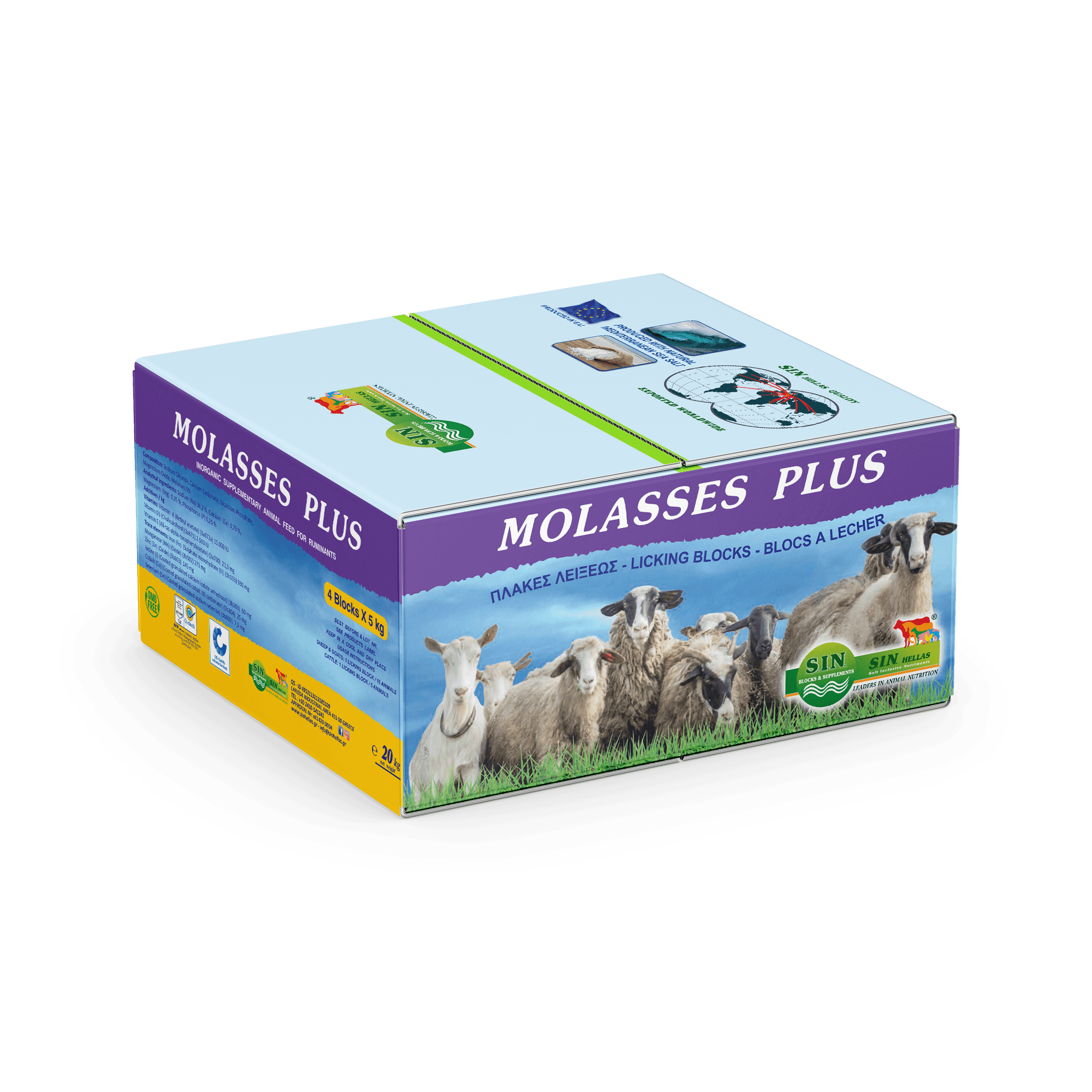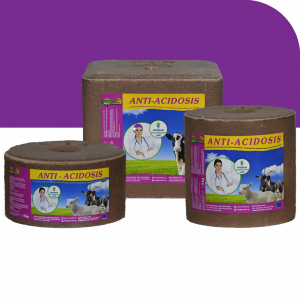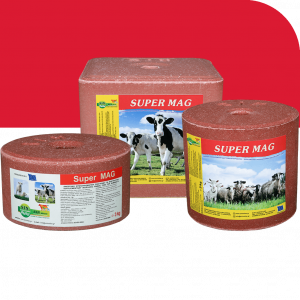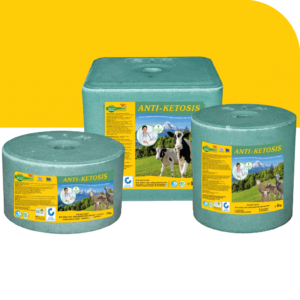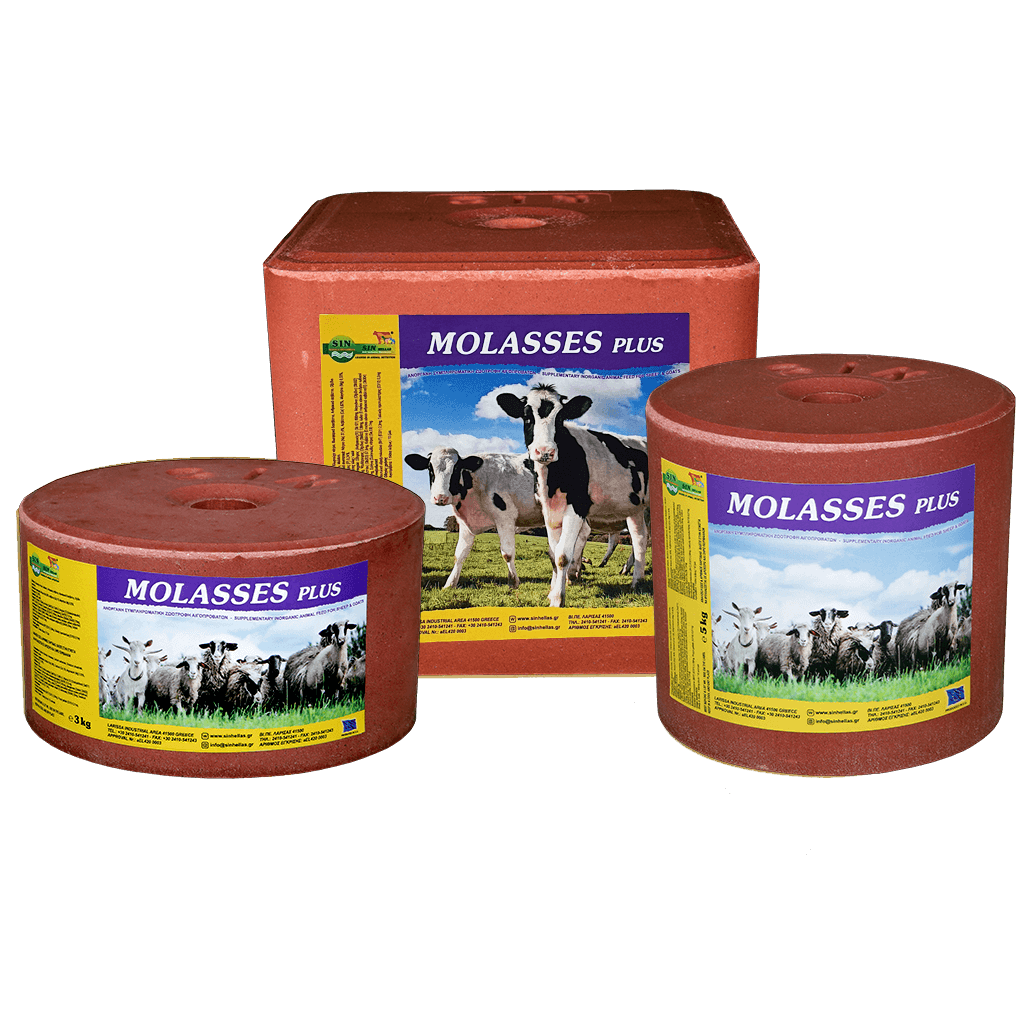
MOLASSES PLUS
High Molasses Energy Licking Blocks
Minerals , Elements & Vitamins













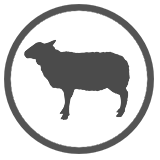
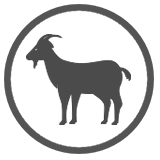
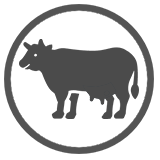
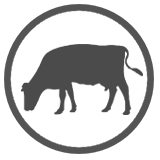
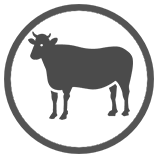
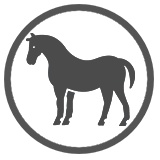

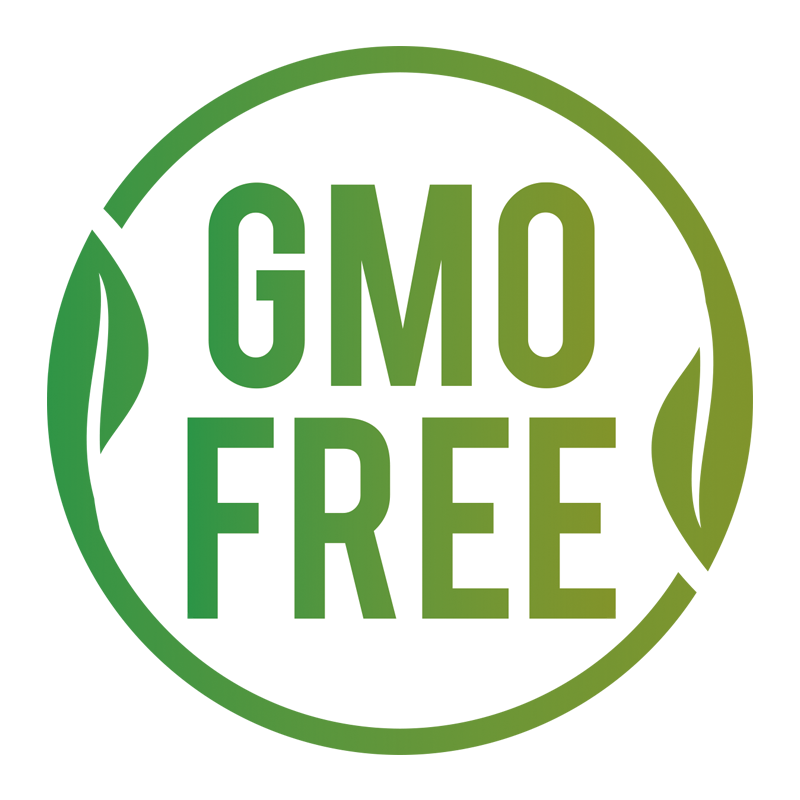

- Productivity Improvement
- High Energy Source
- Milk Productivity Increasement
Benefits
- Suitable for all ruminats in all stages of their lives
- Necessary in all grazing lambs, goats and cattle for regaining day' s lost energy
- Helpfull in young, pregnant, diseased or weak animals
- Healthier animals
- Milk production increasement
- Fertility improvement
Nutrition Facts
Composition
Sodium Chloride, Dicalcium Phosphate, Calcium Carbonate, Magnesium Oxide, Molasses (Sugar beet)
What is improving
Magnesium
Magnesium is needed for more than 300 biochemical reactions in the body. It helps to maintain normal nerve and muscle function, supports a healthy immune system, keeps the heartbeat steady, and helps bones remain strong. It also helps adjust blood glucose levels. It aids in the production of energy and protein, improves the digestibility of feed and improves the reproduction.
Calcium
Calcium is the main component of bones and teeth. It has chief metabolic functions in the animal bodies and is also essential for muscle activity, skeleton, blood clotting, nerve transmission and dynamics of enzyme function. Calcium metabolism at calving is one of the most important animal health factors influencing the production, reproduction and feed conversion efficiency as it plays a major role in the absorption of nutrients (modification of the cell permeability) .
Iodine
Iodine’s function is as a constituent of thyroxin, a thyroid gland hormone that regulates the basal metabolic rate. Thyroid-stimulating hormone (TSH), secreted by the anterior pituitary gland, enhances the iodine uptake by the thyroid gland. Short-term deficiency leads to hypothyroidism, with reduced growth rate and reproductive problems, hair loss, and dry skin. Long-term deficiency leads to goiter. Without iodine, thyroxin cannot be synthesized. This causes the release of TSH, which in turn causes the hypertrophy of the thyroid gland.
Iron
Iron is essential for a wide variety of the metabolic processes of living organisms, due to its chemical transitional property. Iron is present in the different forms of heme and the iron-sulfur (Fe-S) cluster binding protein, which plays an important role in various enzymatic reactions such as aerobic respiration, TCA-cycle function and DNA synthesis as well as oxygen transport and storage. It is a substantial component of red blood cells participating to the blood's structure and improves the functioning of organs and tissues.
Phosphorus
Phosphorus is very important for all animals for healthy muscles, bones and teeth development, steady digestion, healthy function of the energy metabolism and is an inevitable macro element for reproduction. Deficiency of Phosphor will cause the body to use up phosphor reserve in bone tissues as compensation, however if it isn’t replenished in a short period, issues will arise in all bodily functions and will cause the animals to eat objects with no nutritional value.
Vitamin A
Vitamin A is necessary for support of growth, health and life of major animal species. In the absence of vitamin A, animals will cease to grow and eventually die. Vitamin A and its derivatives, the retinoids, have a profound influence on organ development, cell proliferation, and cell differentiation and their deficiency originates or predisposes animals to a number of disabilities.
Vitamin D3
Vitamin D. The primary function of Vitamin D is to elevate plasma calcium and phosphorus to a level that will support normal mineralization of bone as well as other body functions. It is now realized that Vitamin D is not only important for mineralization and skeletal growth but has many other roles in regulation of the parathyroid gland, in the immune system, in skin, cancer prevention, in metabolism of foreign chemicals and in cellular development and differentiation.
Vitamin E
Vitamin E has been shown to be essential for integrity and optimum function of reproductive, muscular, circulatory, nervous, and immune systems. One of the most important functions is its role as an intercellular and intracellular antioxidant. Vitamin E is part of the body’s intracellular defense against the adverse effects of reactive oxygen and free radicals that initiate oxidation of unsaturated phospholipids and critical sulfhydryl groups.
Suitable for
Sheep, Goats, Dairy Cows, Dry Cows, Cattle / Beef, Horse
Available Colors
Packaging

Box of 8pcs x 3kg
3kg blocks wrapped in plastic film in box of 8pcs x 3kg

Box of 4pcs x 5kg
5kg blocks wrapped in plastic film in box of 4pcs x 5kg

10kg block
10kg blocks wrapped in plastic film with handle


